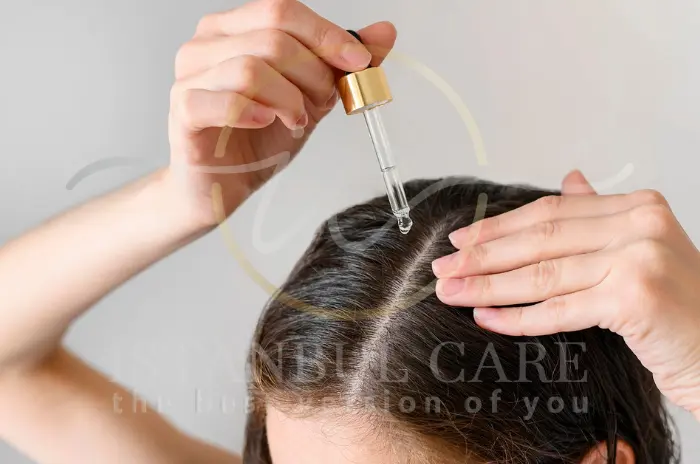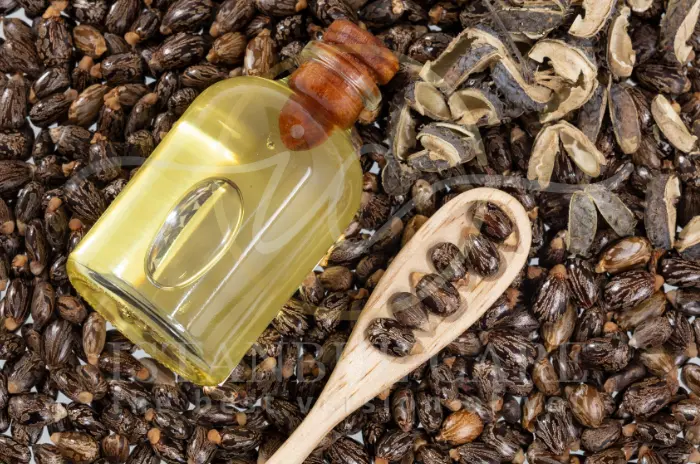Castor oil is a thick, vegetable-derived oil obtained from the seeds of the Ricinus communis plant. It has long been used for its medicinal and cosmetic benefits due to its high content of ricinoleic acid, omega-6 fatty acids, and vitamin E. These nutrients support hydration, reduce inflammation, and stimulate circulation in the scalp, which can lead to healthier hair growth.

How to use castor oil for hair growth and thickness
To apply castor oil for hair growth:
- Warm 1–2 tablespoons of castor oil slightly.
- Apply to the scalp with fingertips, massaging gently.
- Distribute through the hair to the ends.
- Cover with a shower cap and leave for 30 minutes to overnight.
- Rinse out with a sulfate-free shampoo.
Use this routine once or twice a week. For easier application, it can be mixed with lighter oils like coconut or argan oil.
Side effects of ingesting castor oil include
Ingesting castor oil can lead to serious health risks and should only be done under medical supervision. Side effects may include:
Abdominal cramps
Cramping occurs due to the strong laxative effect of ricinoleic acid in castor oil, which stimulates the muscles of the intestines.
Diarrhea
A common effect due to increased bowel movements. Excessive diarrhea can lead to dehydration and electrolyte imbalance.
Dizziness
Dizziness may result from rapid bowel evacuation or dehydration, especially in sensitive individuals.
Fainting
Fainting can occur from a drop in blood pressure or sudden dehydration, especially if large doses are ingested.
Hallucinations
In rare cases, castor oil toxicity may affect the nervous system, leading to hallucinations or altered mental status.
Nausea
This is one of the earliest signs of gastrointestinal irritation after ingestion and may occur with or without vomiting.
Shortness of breath
Allergic reactions or severe gastrointestinal stress may lead to breathing difficulty, requiring immediate medical attention.
Chest pain
Chest discomfort may be linked to gastrointestinal spasms, acid reflux, or allergic reactions triggered by ingestion.
Skin rash
A systemic allergic reaction from ingesting castor oil may manifest as skin rash, hives, or itching.
Throat tightness
Throat constriction can be a sign of anaphylaxis, a medical emergency, and should be treated promptly.
Vomiting
Frequent or severe vomiting can occur due to gastrointestinal irritation or toxicity and increases the risk of dehydration.
Gastrointestinal irritation
Castor oil’s stimulant laxative properties can irritate the stomach and intestines, leading to bloating, pain, or inflammation.
Increasing beard growth with medical treatments
If castor oil doesn’t yield desired results for beard growth, medical alternatives include:
Testosterone therapy
This hormone plays a major role in the development of male secondary characteristics, including facial hair. Men with clinically low testosterone levels may experience sparse or delayed beard growth. Under a doctor’s supervision, testosterone replacement therapy can stimulate facial hair development. However, it’s crucial to monitor hormone levels regularly, as excess testosterone can lead to side effects like acne, aggression, or prostate complications.
Minoxidil (Rogaine)
Minoxidil is a vasodilator primarily used to treat scalp hair loss but is commonly used off-label to stimulate beard growth. It works by improving blood flow to the follicles and potentially extending the anagen (growth) phase of the hair cycle. Results may take several months and should be monitored for skin sensitivity, dryness, or irritation.
Beard implants
This cosmetic solution involves transplanting hair follicles from other areas of the body (often the scalp) into the beard region. It is a permanent and highly effective method for achieving denser facial hair. Beard implants are typically performed by a specialist in an intermediary organization, and post-operative care includes avoiding shaving for several weeks and maintaining hygiene to prevent infection.
Benefits of Using Castor Oil for Hair Growth
Castor oil offers several unique benefits when used consistently as part of a haircare routine:
Provides Moisture
Castor oil is an emollient that deeply hydrates both the scalp and hair strands. Its rich fatty acid profile locks in moisture, which is especially helpful for those with dry, brittle, or frizzy hair. Hydrated hair appears shinier, softer, and is less prone to breakage.
Helps Prevent Scalp Infections
Due to its antifungal and antibacterial properties, castor oil helps reduce the risk of infections on the scalp, such as dandruff, seborrheic dermatitis, and folliculitis. Keeping the scalp healthy is key for maintaining active hair follicles.
Serves as an Antioxidant
Castor oil contains vitamin E and other antioxidants that protect hair follicles from oxidative stress and damage caused by free radicals. This helps slow the aging process of hair and maintains scalp vitality.
May Improve Androgenetic Alopecia
Though scientific data is still emerging, castor oil’s ability to reduce inflammation and improve circulation may assist those suffering from androgenetic alopecia (pattern baldness). By supporting follicle health, it could slow the progression of hair loss.
Supports Eyelash and Eyebrow Growth
Castor oil is gentle enough to use on more delicate hair like eyelashes and eyebrows. With consistent application, it can nourish these finer hairs, promoting fuller, darker, and healthier growth.
| Benefit Category | Castor Oil Performance | Notes |
|---|---|---|
| Moisturizing | High | Suitable for all hair types |
| Antibacterial/Antifungal | Strong | Ideal for treating dandruff |
| Antioxidant Protection | Moderate to high | Rich in vitamin E |
| Eyelash/Brow Support | Effective with consistency | Apply using a clean mascara wand |
| Alopecia Support | Moderate (early stages) | Works best when combined with other care |
Is castor oil good for Black hair?
Yes, castor oil is especially beneficial for tightly coiled and natural Black hair textures. It locks in moisture, reduces breakage, and helps to maintain scalp health.
Castor oil for longer locks
By strengthening hair shafts and moisturizing the scalp, castor oil can reduce breakage and split ends, allowing hair to grow longer over time.
Does Castor oil really work for hair growth?
While scientific studies are limited, many users report improvement in hair density and shine. Its effectiveness largely depends on consistent application and scalp stimulation.
Does Castor Oil Help Facial Hair Growth?
Yes, it may support growth by nourishing the follicles and improving skin health. However, results vary, and it should not be relied upon as the sole treatment for patchy beard growth.
Types of castor oil
- Castor oil – Traditional cold-pressed oil for general use.
- Black castor oil – Derived from roasted beans, rich and thick.
- Jamaican castor oil – Popular black castor variant with added ash content.
- Yellow castor oil – Filtered variant with pale golden color.
- Hydrogenated castor oil – Often used in solid cosmetic products.
Is castor oil good for hair loss?
Castor oil may reduce temporary hair loss related to dryness, breakage, or minor scalp infections. However, it is not a replacement for medical treatments for alopecia or hormonal imbalances.
Using larger amounts of castor oil Excessive use can lead to:
- Chest pain
- Fainting
- Abdominal cramping
- GI discomfort
- Nausea and vomiting
- Skin sensitivity
Castor oil for hair: how to get the best results
- Use weekly and massage into the scalp
- Cover hair after application to lock in moisture
- Mix with lighter oils to reduce stickiness
- Be consistent over a period of weeks or months
Are there alternative remedies for facial hair growth?
- Biotin supplements
- Zinc and Vitamin D
- Topical peptides or caffeine-based products
- Microneedling with topical serum
Can Castor Oil Give You Thicker Eyebrows?
Regular application to the brow area can nourish follicles, improving density and thickness.
Is there research to support using castor oil on your eyebrows?
While clinical studies are scarce, anecdotal evidence and widespread cosmetic use support its effectiveness.
Benefits of castor oil for the face and skin
- Moisturizes dry skin
- Reduces signs of aging
- Fights acne-causing bacteria
- Aids in wound healing
- Reduces inflammation
Castor oil vs rosemary oil for hair growth: which is better?
| Feature | Castor Oil | Rosemary Oil |
|---|---|---|
| Moisturizing | High | Moderate |
| Stimulates Circulation | Moderate | High |
| Antibacterial | Yes | Yes |
| Recommended for sensitive scalp | Yes | Caution advised |
| Evidence for hair growth | Moderate | Stronger |
What else does castor oil do for hair?
- Fights dandruff
- Strengthens hair against breakage
- Protects from environmental damage
- Adds shine and improves manageability
Castor oil for different hair types
- Straight hair: Use sparingly to avoid greasiness.
- Wavy hair: Helps define waves and reduce frizz.
- Curly hair: Adds bounce and moisture.
- Coily hair: Deep hydration and repair for brittle strands.
Are there any risks of using castor oil on your hair?
- Allergic reactions (test patch recommended)
- Buildup on scalp if not washed properly
- May clog pores if used excessively on face
We’re ready to answer your questions
Yes, it supports follicle health and can improve thickness over time.Massage into scalp and distribute to ends. Leave on for 30 minutes to overnight before rinsing.Once or twice a week consistently.Possible reactions include itching, buildup, and oily scalp if overused.Yes, apply gently using a clean brush.Cold pressed and Jamaican black castor oil are widely recommended.Yes, it’s versatile but amount and frequency should be tailored to hair type.Its antifungal and antibacterial qualities make it suitable for managing dandruff.
Follow us on social media for updates, tips, and patient success stories:



